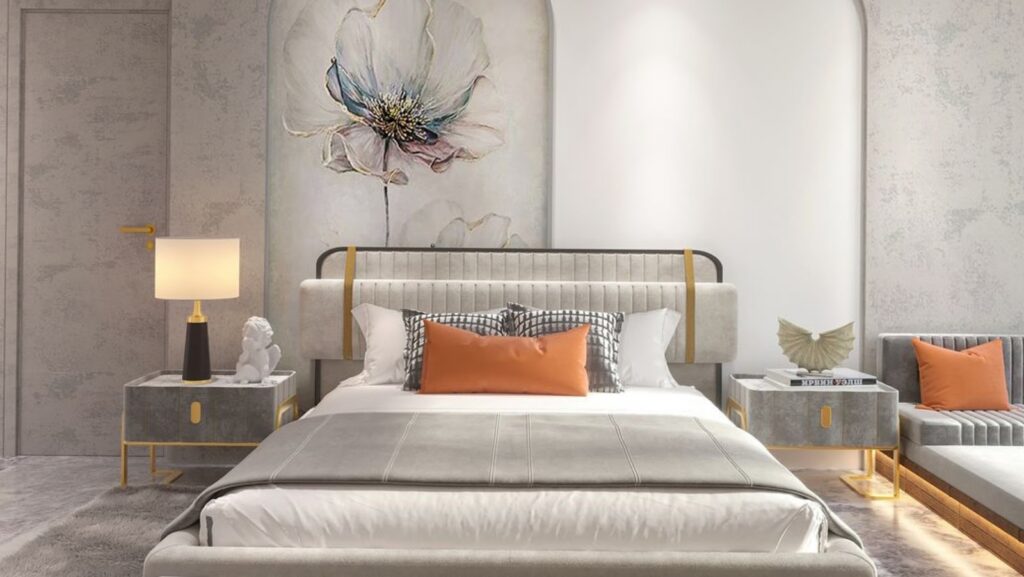People often complain about how easy it is to doze off and how difficult it is to get out of bed in the morning. But for those for whom the reverse is the case, this is one problem they’ll do everything possible to have.

Source: SHVETS production/Pexels
Insomnia is torture. It can significantly affect your overall well-being, putting you at risk of mental distress, anxiety, and other mood disorders. Fortunately, the tips in this article can help if you find it difficult to fall and stay asleep.
The Link Between Bedroom Design and Insomnia
The good thing about insomnia is that it’s treatable and sometimes by taking simple actions such as changing your room’s design. Yes, you heard that right.

Source: chaitalip4art/Instagram
Bedroom layout and sleep quality have a “garbage in, garbage out” relationship. So, if you’re suffering from insomnia, a chaotically-designed space will only worsen the problem.
Hear from the Experts
Many sleep experts have confirmed our stance. In the words of Adam Black, Button & Spring founder, Adam Black, “Think of your bedroom as a sanctuary, it’s where you go to relax and unwind after a long day, therefore the space needs to be tranquil and soothing.

Source: thewomensnest/Instagram
“Not only will relaxing bedroom design tips reduce overall stress levels, they will enhance your quality of sleep,” he added.
Never Get Enough of Houseplants
One of the ways Adam Black wants us to design our bedrooms for sleep is with houseplants. Our suggestions include peace lily, the forest fairy, the kentia plant, lavender, jasmine, etc.

Source: bedffully/Instagram
He says, “There is no greater effect on our wellbeing than when nature is invited into our homes.” Plus, studies have shown that exposure to nature can improve our mental health and sleep quality.
Calm Your Nerves with Soft Lighting
Did you know that soft lights evoke a sense of calm, creating the perfect ambiance for a good night’s sleep? Now you do.

Source: Pinterest
Again, light and darkness are the primary influencers of our natural circadian rhythm (the body’s internal biological clock). While excess artificial lights can create a daytime illusion, soft lights produce the opposite effect. So, ditch the big lights for hygge lamps and you’ll be glad you did.
Invest in Blackout Blinds and Bumps
“While exposure to natural light, especially in the morning, can help with waking up, it’s important to create a darker environment to unwind in when going to sleep,” says Purlfrost’s co-founder, Joanna Baumard. “By applying a light-blocking or dimming window film, you can create a barrier against external light sources.”

Source: ifitblindsandshuttess/Pinterest
You can also line your curtains with bumps or interlining to not only block out light, but outside noises too.
Color Palette Matters…
Color is one of the most powerful mood determiners when it comes to interior design. Take advantage of this knowledge by carefully choosing your color palette.

Source: _home_atno5/Instagram
The creative director of The Wood Flooring Co., Natalie Mudd says to stay away from stark white because it creates a stark and cold ambience. “Instead look to inject color and personality with soft pastel tones for a scheme that feels uplifting,” she advised.
…And So Does Your Flooring
When choosing color, don’t forget to bring your floors into the conversation as like the walls, they play significant roles in determining the room’s overall vibes.

Source: aarman.decor/Instagram
According to Mudd, “Choosing a lighter-toned wooden floor gives the illusion of more footprint. The direction of the flooring makes an immense impact on the flow and spatial feel of a room.”
Choose Your Mattress and Bedding Carefully
You didn’t think we could talk about your room design without a section dedicated to mattresses and bedding, did you? These are essential elements that directly and significantly determine your sleep quality.

Source: hghomshop/Instagram
Generally, it’s advisable to go for mattresses and beddings made from natural materials such as cotton and wool. These help to regulate your body temperature, reducing the likelihood of disturbance due to abrupt changes in temperature, especially during summer.
Keep Your Bed Comfortable and Beautiful
The Home Design Stylist for John Lewis & Partners, Alexandra Fox says, “One of the best ways to ensure a good night’s sleep is to ensure you have plenty of space, especially if you are sleeping with a partner.”

Source: omprakash_thakrani_architects/Instagram
According to Zinus’ brand specialist, Stephany Aubrey, “Your bedroom is your personal sanctuary, and your bed takes center stage within it. Creating a beautiful bed not only adds aesthetic appeal to your space but also enhances the quality of your sleep.” Need we say more?
Don’t Bring Work Home
If your job takes you outside your home, we suggest that you leave your work at work to avoid any distractions that could impact your quality of sleep. However, for remote workers, the advice is to keep it as far away as possible from your bedroom.

Source: thehoxtonhotel/Instagram
According to Coast Road Furniture’s interiors director, doing otherwise “can make it much harder to switch off at the end of the day.”
Replace Your Phone with an Alarm Clock
Experts often advise us to keep our phones away from the bedroom to avoid tricking our bodies into believing it’s not sleep time yet. But we know from experience that this is almost an impossibility.

Source: Miriam Alonso/Pexels
Sometimes, we need our devices beside us for legitimate reasons, including alarms. In such cases, you’ll be better off ditching your phone alarm for an actual alarm clock. Besides improving the duration and quality of sleep, alarm clocks are fascinating too.
